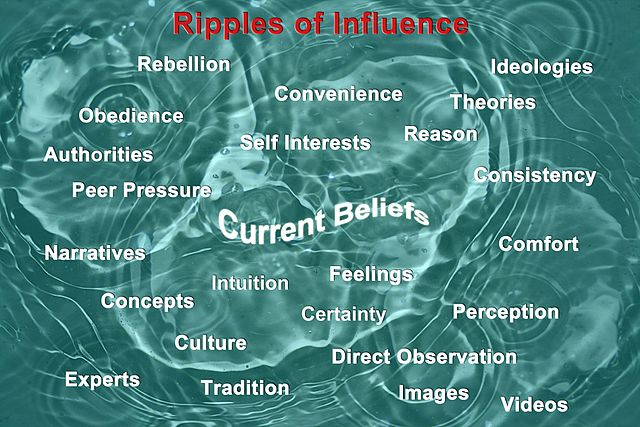In the case of uncertainty, expectation is what is considered the most likely to happen. An expectation, which is a belief that is centered on the future, may or may not be realistic. A less advantageous result gives rise to the emotion of disappointment. If something happens that is not at all expected, it is a surprise. An expectation about the behavior or performance of another person, expressed to that person, may have the nature of a strong request, or an order; this kind of expectation is called a social norm. The degree to which something is expected to be true can be expressed using fuzzy logic. Anticipation is the emotion corresponding to expectation.
"Surely he will come?". Painting by Christen Dalsgaard. From the Hirschsprung Collection, Denmark.
A belief is a subjective attitude that a proposition is true or a state of affairs is the case. A subjective attitude is a mental state of having some stance, take, or opinion about something. In epistemology, philosophers use the term "belief" to refer to attitudes about the world which can be either true or false. To believe something is to take it to be true; for instance, to believe that snow is white is comparable to accepting the truth of the proposition "snow is white". However, holding a belief does not require active introspection. For example, few individuals carefully consider whether or not the sun will rise tomorrow, simply assuming that it will. Moreover, beliefs need not be occurrent, but can instead be dispositional.
Philosopher Jonathan Glover warns that belief systems are like whole boats in the water; it is extremely difficult to alter them all at once (for example, it may be too stressful, or people may maintain their biases without realizing it).
We are influenced by many factors that ripple through our minds as our beliefs form, evolve, and may eventually change.
Image: Religion collage updated




